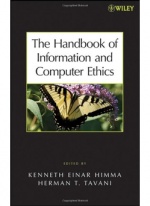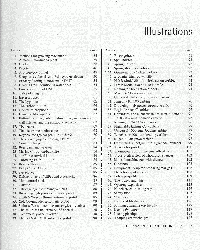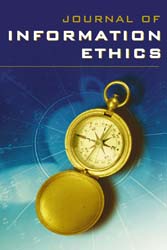Kay Mathiesen
| Birthname | Kay Mathiesen |
| Date of Birth | Unknown |
| Birth Place | Unknown |
| Nationality | American |
| Occupation | Senior Lecturer at the University of Arizona |
| Biography | Information Ethics |
Dr. Kay Mathiesen is a Senior Lecturer at the University of Arizona's School of Information Resources & Library Science. Besides holding a position at the University of Arizona, Mathiesen has contributed to the architechture of other schools' information science programs. She has also published several articles and has held editor positions, as well as other managerial positions, for various information science publications and organizations. With regards to SI 410, we are most concerned with Mathiesen's work surrounding censorship and access to expression, as detailed by her publication: Censorship and Access to Expression.
Contents
Career
Mathiesen is a Senior Lecturer at the University of Arizona's School of Information Resources and Library Science. She is also an Information Ethics Fellow, a program to show prominent scholars and enhance research in Information Ethics, joining in 2009-2010, at the University of Wisconsin-Milwaukee's School of Information Studies' Center for Information Policy and Research.
In 1998, while visiting the University of Arizona's School of Information Resources and Library Science, she created and was the first to teach “Ethics for Library and Information Professionals.”
Education
- PhD, University of California, Irvine, Philosophy
- MA, University of California, Irvine, Philosophy
- BA, Summa cum Laude, University of California, Santa Cruz, Philosophy
Publications
- "What is Information Ethics?" Computers and Society, Vol. 32, No. 8, 2004.
- "The Ethical Presuppositions Behind the Library Bill of Rights" [with Martin Frické and Don Fallis] Library Quarterly, Vol. 70, No. 4, 2000.
- "Who's to Blame? Individual and Collective Responsibility" Brantl Lecture Series, Montclair State University, March 10, 2005.
- "Liberal Theory and the Collective Right to Privacy" 2nd Annual Information Ethics Roundtable, Massachusetts College of Liberal Arts, May 2, 2004.
- "Virtue Ethics and Rescuers of Jews in the Holocaust" [with Kristen Monroe and Jack Kraypo] Annual Review of Law and Ethics, 1998.
Censorship and Access to Expression
Definition
Mathiesen describes censorship as "[limiting] access to an expression, either by deterring the speaker from speaking or the hearer from receiving such speech" (Censorship 2008 pp. 574). She further defines an expression as "anything that may be composed by one person and communicated to another" (i.e.: speeches, personal communications, books, articles, compilations of data, art works, photographs, and music)(Censorship 2008 pp. 574).
Mathiesen claims that human beings have a natural interest to access of information, as we have a "fundamental [interest] in communicating with others" (Censorship 2008 pp. 575). Censorship is not concerned with limiting an individuals abilities to express themselves, rather, limiting the ability for others to access said expressions. "The goal of freedom of expression is not that the speaker gets to speak, but that people are able to communicate with each other" (Censorship 2008 pp. 575). This is complimented by defining the goal of speech, which is to find somebody to listen.
With this in mind, Mathiesen defines censorship as the "[restriction or limitation] of access to an expression, portion of an expression, or category of expression, which has been made public by its author, based on belief that it will be a bad thing if people access the content of that expression" (Censorship 2009. pp. 576).
Primary Motivation for Censorship
"The motivation for censorship is often disapproval of the content or worry about its effects on "public morality" (Censorship 2008 pp. 577).
Other motivations for censorship, however, may include the moral disapproval of what individuals may do with the information gained from accessing an expression. For example, information on bomb making is, in itself, non threatening, however, what individuals may choose to do with this information can be very threatening.
Inherently Harmful Access
"This view holds that accessing some content is simply inherently bad" (Censorship 2008 pp. 580).
Access to content becomes inherently bad when "the material is offensive or insulting to the recipient, the material is degrading or corrupting to the character of the recipient (and perhaps the speaker as well), or [when] accessing the material exploits the human beings who are subjects of the expression" (Censorship 2008. pp. 580).
Examples include:
- Explicit Sexual Content
- Racist Language
- Violent Content
- Blasphemous Works
- Treasonous Works
- Politically "Subversive" Works
Instrumentally Harmful Access
Content is censored for the concern that harm to another may be a consequence to unrestricted access to certain information.
Information is instrumentally harmful when it:
- Creates a Market
If an individual (or individuals) is harmed in the creation of said content, then providing access to the content may promote the formation of a market for said content, which will lead to the creation of more content. For example: child pornography.
- Hostile Atmosphere
By accessing certain information, it is argued that it may result in an attitudinal environment that is somehow harmful to a particular person or group of people. For example: "Some argue that pornography should be censored, because it creates a social atmosphere that perpetuates sexism and the objectification of women" (Censorship 2008 pp. 582).
- Influence
Accessing some content may directly inspire the development of harmful or antisocial attitudes and behaviors. For example: violence in the media influencing children to be more violent.
- Implementation
Information that provides details and/or instruction that can be used to do something that will cause harm. For example: works that describe how to make bombs, how to make drugs, how to commit suicide, etc.
Against Censorship
"What censors often don't consider is that, if they succeed in suppressing the the ideas they don't like today, others may use that precedent to supreme the ideas they do like tomorrow," as stated by The American Library Association in their Intellectual Freedom and Censorship Q & A.
Why it's Not Appropriate to Censor Expressions to Avoid Possible Negative Consequences (Censorship 2008 pp. 583)
*"In fact there are no such negative consequences that can be tied to accessing such expressions" *"Rights to information cannot be overridden based on such consequential reasoning" *"The harms created by denying access will in almost every case outweigh any created by allowing access"
The Minimalist Defense
- "Negative consequences can never be tied to the simple fact that someone has accessed some information" (Censorship 2008 pp. 583).
- "The censor fails to recognize the role of people's agency in accessing and assessing information" (Censorship 2008 pp. 583).
- "People are not passive recipients of information; they bring their own values, knowledge, and perspectives to the information" (Censorship 2008 pp. 583). In other words, people are not simply blatant storage devices for information (like a hard drive), however, they analyze any information that is received (this analysis may be subconscious) and it's juxtaposed with all of the other information that the individual may have.
The Maximalist Defense
- "Even if access to information may lead to harm, it ought never be restricted" (Censorship 2008 pp. 583).
- Individuals should have control over their own reasoning process
Limitations
*Individuals may not explicitly recognize an expression as either rational or persuasive. *Relies on the individual to evaluate information. What if a specific individual is evil?
Censorship As a Microcosm and a Slippery Slope
When select individuals begin to censor expressions, it ultimately leads to a slippery slope. Why do any individual civilians have the audacity to push their individual views on others? By deciding that certain expressions should be censored, the individual has (hopefully) processed said information and reached his or her own individual conclusion based on his or her own analysis of the information presented. By censoring, the opportunity for an individual to formulate their own subjective view for a particular expression is suppressed.
Furthermore, by partaking in the act of censoring, the acting party is communicating their own ideas to the public. In a way, censoring is just a format for certain individuals to be heard. For example, by publicly denouncing something, one can communicate an expression that reflects his or her personal views. In the form of public disapproval, the disapproving party uses censorship as a venue for communicating their own views, which is ironic, as they feel it is for the good of the public to initiate censorship (or this what they will publicly declare), however, by becoming a gate keeper for information, and restricting the free flow of ideas within a heterogeneous population, the censoring party is acting to gain power, which is not beneficial for the public. This can lead to more and more expressions becoming censored, and the censoring parties becoming more and more powerful.
Application to SI 410
Mathiesen's discussion of censorship does so in a way that is significant to the world of technologically aided information exchange. Her discourse of censorship is relevant to the field of information science, and can be applied to the concepts discussed in SI 410, including virtual environments and information integrity.
Research
- Information Ethics and the Library Profession
- Information Rights
- Social and Political Theory
- Applied Ethics and Ethical Theory
- Social Epistemology
Teaching Areas
- Ethics for Library and Information Professionals
- Intellectual Freedom and Libraries
- Intellectual Property
- Applied Ethics and Ethical Theory
- Social and Political Theory
Notable Projects & Activities
- 2005-present, Guest Editor, special issue of Journal of Information Ethics
- 2000-present, Editorial Board, Journal of International Women’s Studies
- 2005-present, Guest Editor, special issue of Social Epistemology on “Collective Knowledge”
- 2003-present, Co-organizer, Information Ethics Roundtable
- 2001, Creator, “Information and Society” core course for the Massachusetts College of Liberal Arts
See Also
- Anonymous Behavior in Virtual Environments
- Censorship
- Censorship and Pornography
- Information Ethics
- John Weckert
- Policy Vacuums
- Virtual Environment
- Virtual Child Pornography
References
- http://sirls.arizona.edu/mathiesen
- http://www.sir.arizona.edu/faculty/mathiesen/mathiesen.html
- "Censorship and Access to Expression" The Handbook of Information and Computer Ethics, 2008. https://ctools.umich.edu/access/content/attachment/aaaaaee7-1694-481e-95b6-090bdec54ec2/Assignments/227d63b0-669c-4a3e-9399-23a8f97ad737/MediaWiki%20Writing%20Assignment.pdf




